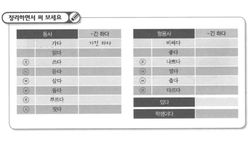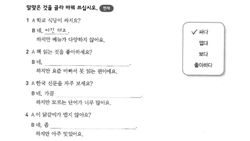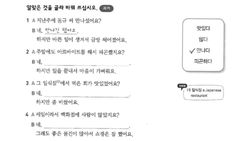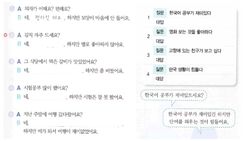Mar 10, 2022
Grammar -긴 하다







-긴 하다
Is shortened expression of -기는 하다 and it is used when expressing one's own opinion which is different from what would be expected based on prior information. It means "it is true that...."
While -긴 하다 can be used alone, it is more often combined with 'but' to defend the admission, resulting in the pattern -긴 하지만(it's true but...). The -긴 하지만 clause and the following clause should be concerned with the same topic.
A: 새로 이사 같 아파트는 어때요?
How is your new apartment?
B: 월세가 좀 비싸긴 하지만 깨끗하고 좋아요.
It's true that the monthly fee is expensive but it's clean and nice.
-긴 하다 is used with verbs, adjectives, 있다/없다 and -이다/아니다.
하다 reflects the tense
➡️ 지난 번 집은 깨끗하긴 했어요. 하지만 값이 비쌌어요.
It's true that previous house was clean. But the price was expensive.
✨Example of -긴 하다✨
➡️ 하다 -> 하긴 하다
A: 요즘 공부를 열심히 하네요.
It seems you study hard these days.
B: 공부를 많이 하긴 하지만 성적이 좋아지지 않아서 걱정이에요.
It's true that i study a lot but im worried because my grade isn't getting better.
📝NOTE 1📝
-긴 하지만 is used when expressing one's own opinion after agreeing with the other person's opinion first, rather than directly denying the other person said.
A: 한국어 공부가 어렵지요?
Studying Korean is difficult, isn't it?
B: 한국어 공부가 어렵긴 하지만 재밌어요.
It's true that it is difficult but it is interesting.
📝NOTE 2📝
-긴 하지만 and -지만 are similar in meaning. However -지만 is used when connecting the preceding clause and the following clause to show equal emphasis.
➡️ 눈이 오는 날은 좋지만 비가 오는 날은 싫어요. (Connecting equally)
While -긴 하지만 is used when emphasizing the following clause.
➡️ 눈이 오는 날이 좋긴 하지만 길이 막혀서 싫어요 (emphasizing on disliking the traffic)